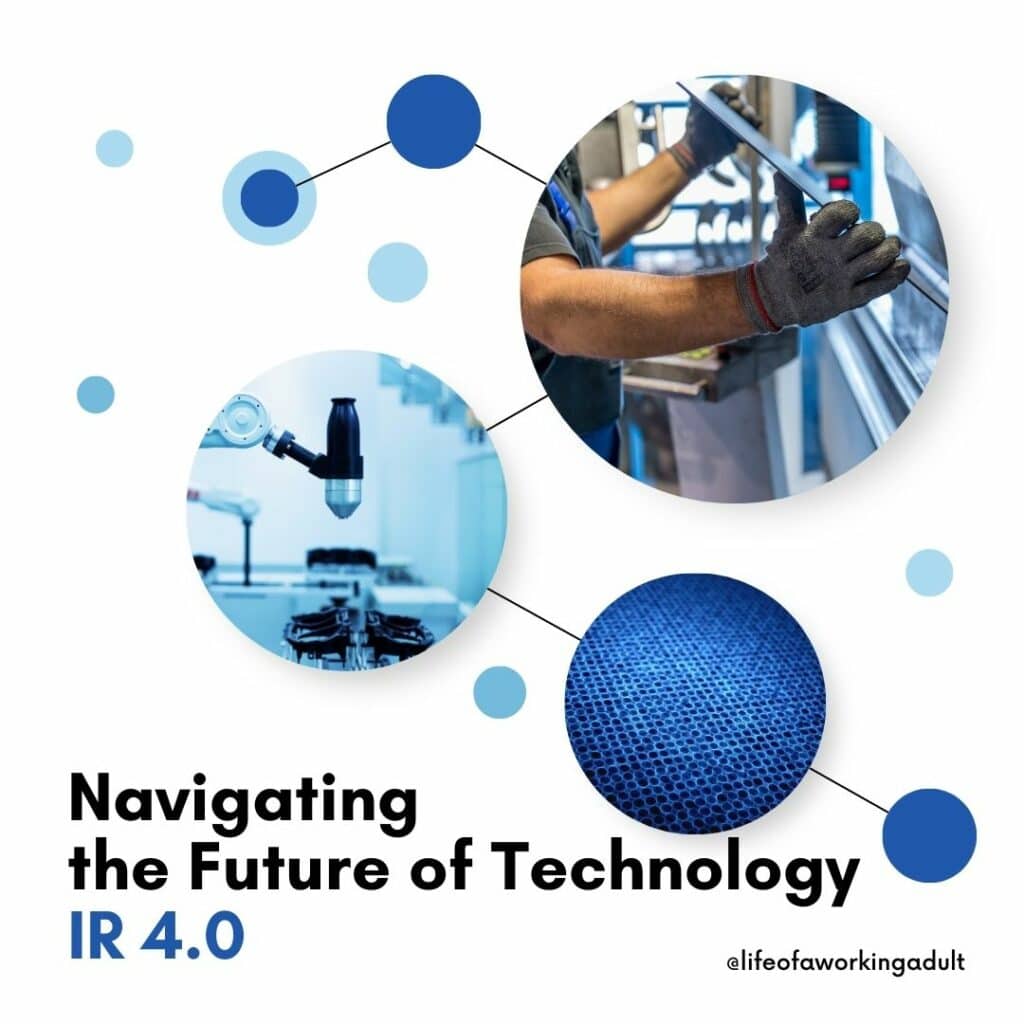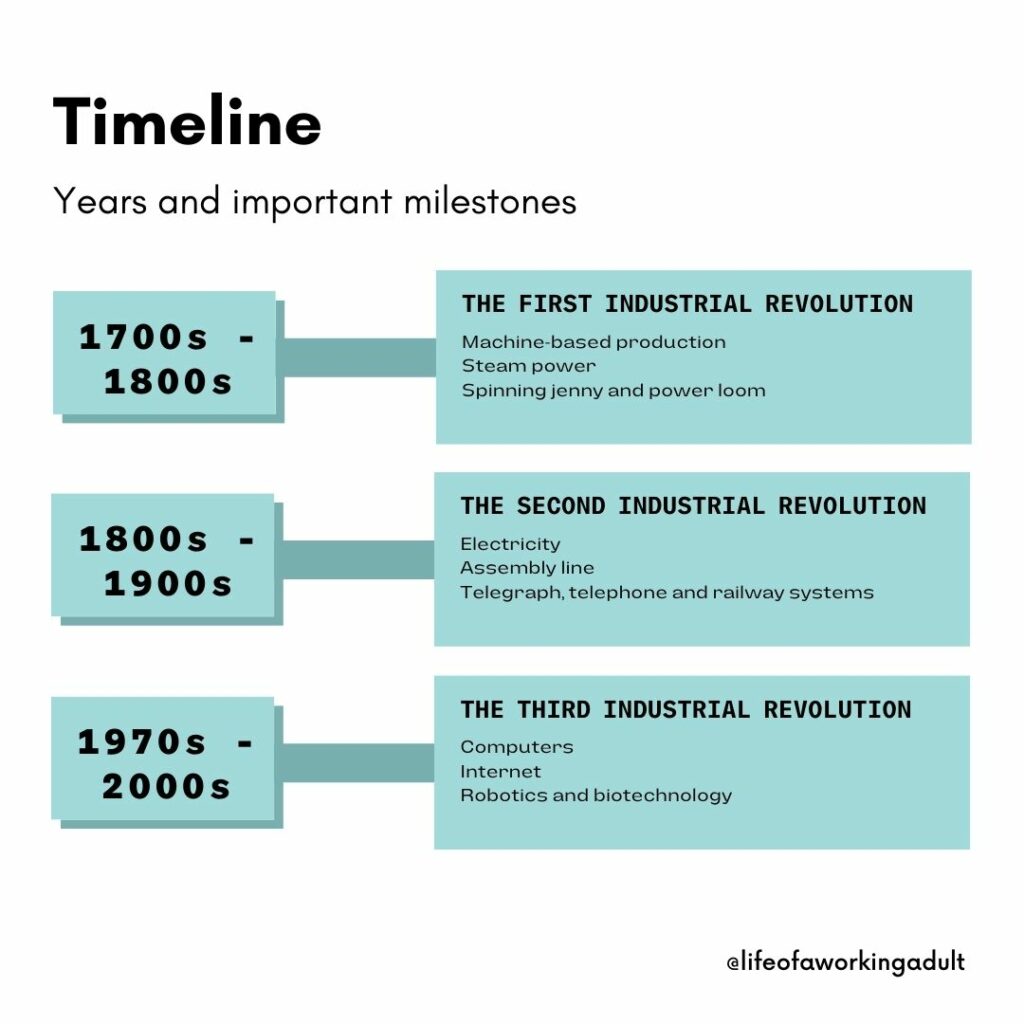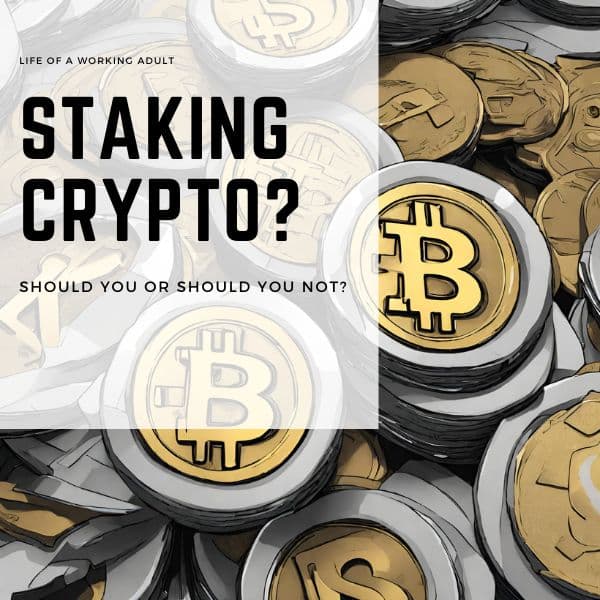Will the Industrial Revolution 4 (“IR4”) make or break you? Heard of the latest craze – ChatGPT? It has taken the internet by storm. It recently managed to pass exams for MBA courses, business, law, and even medical exams too! And it’s only just getting started. In the last two months, I have seen how it has evolved and it is still evolving. Already, there are talks about such AI replacing jobs in the teaching field and customer service.

The Industrial Revolution 4 is already here. Unbeknownst to you, you are already using the new technologies that were introduced during this Industrial Revolution. A few examples of these technologies are 5G networks, artificial intelligence (AI), Big Data, robotics, Internet of Things (IoT), Internet of Systems (IoS), and virtual reality (VR).
What does the Industrial Revolution 4 (“IR4”) even mean?
Basically, in a nutshell, what it means can be summed up below:
- There will be a giant leap in technology that makes everything it touches scalable;
- Everyday things that affect the quality of life will change;
- It will be the fourth time this happens in history.
IR4 represents a new era of automation and connectivity, where physical and digital systems become increasingly interdependent, and the line between the physical and digital worlds becomes increasingly blurred. These will cause exponential changes to the way we live, work and interact with one another.
As these technologies are being implemented in factories and workspaces, connected machines will interact, visualise the entire production chain and make decisions autonomously. And if you’re thinking the service industry is insulated from these changes, you’re dead wrong.
Industries, without a doubt will benefit, as new technologies are expected to increase efficiency, productivity, and spur new economic growth. The world will see an increase in demand for professionals in the fields of data science, artificial intelligence, and cybersecurity, as these technologies become increasingly pervasive.
However, other professionals may be impacted negatively, as automation and new technologies displace their jobs. Many will have to adapt and change to this change. It is increasingly clear that manufacturing jobs will be greatly affected as machines replace humans. It is also becoming clearer that many services will be automated too. As it is, we are already see counter services for payments being replaced by kiosks.
If you think about it, it is rather scary because it will even challenge our ideas about what it means to be human. No doubt it is creating new opportunities for innovation, improving efficiency and productivity, and driving economic growth but it is disrupting almost every industry and creating massive changes in a non-linear way and at an unprecedented speed. At the same time, it is also creating new challenges, such as the displacement of certain jobs forcing people to be out of jobs, resulting in authorities to come up with plans to re-skill workers to adapt to this new scenario.
What were the first three?
I have not lived long enough to say that I have experienced one. If the fourth is here, this would be my first.
The first three industrial revolutions were significant shifts in the way goods were produced, characterised by the introduction of new technologies and manufacturing methods. They had a profound impact on society, transforming the economy and changing the way people lived and worked. It enabled the world to progress that brought about a better quality of life.
Here’s a brief overview of each of the three industrial revolutions:

- The First Industrial Revolution (1760-1840) – This revolution is characterised by the transition from manual labor to machine-based production. It was driven by advances in the textile industry, such as the development of the spinning jenny and the power loom, which allowed for the mass production of textiles. The use of steam power in factories also increased efficiency and made it possible to produce goods on a large scale. The first industrial revolution had a significant impact on society, as it led to the growth of cities and the rise of a new middle class and changed the agricultural landscape.
- The Second Industrial Revolution (1870-1914) – This revolution is characterised by the introduction of new technologies in the areas of transportation, communication, and electricity. The development of the telegraph, telephone, and railway systems improved communication and made it easier to transport goods and people. The introduction of electricity brought new forms of energy to industry and improved working conditions. It also blurred the line between night and day. The second industrial revolution saw the rise of large corporations and increased international trade.
- The Third Industrial Revolution (post-1980) – This revolution is characterised by the integration of digital, biological, and physical systems. It is driven by the development of computers, the internet, and advances in robotics and biotechnology. The third industrial revolution also brought about a digital revolution, with many aspects of our lives being transformed by the widespread use of digital technology. The rise of e-commerce, the sharing economy, and the growth of the gig economy are all examples of how the third industrial revolution has changed the way we live and work.
Each IR followed the preceding one within a shorter time. Where do I fit in, then? I am a millennial, a child of the 1990s. I am living my first IR, but it feels like IR4 will be ushering in many changes way quicker than previous ones.
I grew up with the sounds of dial-up modems. My dad and mom subscribed to the internet as soon as it was available in my hometown. They were constantly using the internet, joining forums, looking for stuff, etc. I think my parents were pretty forward-looking, and it has rubbed off on me.
So, here I am in the throes of IR4…. with a mixed bag of feelings, wondering and thinking, anticipating with some excitement of the things to come.
What does this mean for us?
We often think that although this change is upon us, it won’t impact us significantly. After all, what can an IoT device or a VR headset do to us? If you’re having that mindset, I think it’s best to change it quickly. Cos what used to be in the pipeline got pushed out into the world early by the 2019 pandemic.
IR4 is a big deal and you should be thinking about it because when it really hits, everyone’s economic fortunes have the potential to change drastically, for better or for worse. Unlike IR1, IR2 and IR3, this latest wave of revolution will permeate into every aspect of our lives. It’s going to be pervasively present around us and even inside of us.
| Case Study Before the invention of steam engine, a ship needed sailors to row the ship when the wind failed. Of course it was totally dependent on human brawn before the invention of sails. Ships had to accommodate many sailors as a result. Then the stream engine came, and rowers were put out of jobs. Ships could travel anywhere independently and with less crew too. There were also fewer mishaps because navigation tools got better too. The seas became less dangerous. When Magellan set out to circumnavigate the globe, there were five ships powered by sails. Only one made it back, minus Magellan. The seas were dangerous, and such ships had a horrendous time navigating their way through them. So many had to die on that journey. With the steamships, sail crew gave way to “marine engineers”. In each of the changes brought about by the disruptive technology of the day, there was always this change from “more to less” manpower. However, new jobs were always created by the disruptions because the economy got scaled up too by those changes. So more new jobs got created to manage the new processes that came up in this scaling up. |
Fast forward to IR4. AI and machine learning will automate many of the jobs which we take for granted. Like the disruptions that we see in shipping, we will see a “more to less” drawing down of the human factor. Amazon Warehouses and Tesla factories are examples of how IR4 is reshaping the world.
The difference this time is, IR4 is giving rise to a new ‘creature’ that can learn as it goes along. We are already seeing the capabilities of robots developed by the likes of Boston Dynamics. The dexterity of these robots coupled with the immensely mind-boggling ability of what we see in the learning ability of platforms like ChatGPT is going to make many of the jobs we know facing elimination because it is apparent that these new superior ‘creatures’ will be able to do them better than us.
So, where do we humans go from here? Would there be an attempt of a Luddite-like movement out of fear of the change that is happening?
Make no mistake – the reality is that every Industrial Revolution sees a shift that has big winners and big losers. Progress is always not fair. For one to succeed, another must fall.
When new technologies are adopted at scale, old technologies are also abandoned in greater scale. People whose jobs rely heavily on the old ways of doing things will have their incomes suddenly disrupted. And many will find themselves bewildered by all those disruptions because they won’t fully understand what has hit them.
3D and 4D printing are already starting to displace certain manufacturing jobs. Food printing is beginning to make its presence felt too. Even oil is beginning to lose its lustre as the black gold. In these all, you see the hand of AI and machine learning.
What has the fourth Industrial Revolution changed?… and why it can feel scary.
Previously, we were told that by having an education, it would assure you a job and an income to live by. But the fourth Industrial Revolution is changing that belief. Having an education alone is now insufficient to get through the changes.
Let’s bring ChatGPT back into the picture again. No technology in modern memory has caused mass job loss among highly skilled or educated workers. Disruptions have always happened at a massive scale at the lowest rung of the economy. When I look at ChatGPT, I wonder a lot too whether this generative AI will be an exception? It’s hard to imagine it not to be so.
How am I preparing for it?
Generally, there are two ways people make money: Labour and capital.
Labour is where we exchange our precious time for money, a.k.a. our day-to-day job. That’s why most of us go to school because that prepares us to be able to barter our skills for money.
Capital is about putting your previous hard earned money to work for you. In other words, making investments to enable us to make more money.
Labour
Upskilling will be incredibly important
Gone are the days where you can take your own sweet time to learn a new skill. The degree that you study for can no longer guarantee you even with the skills required for jobs. My sister is studying Computer Science. Yet, I see how changes are happening so rapidly that what she is doing now will most likely be irrelevant when she graduates. I can see that it is no longer about what you know that matters most – it’s more about how quick to adapt you are that seems to be more important.
What I try to do is I’ve been upskilling myself by taking courses here and there on Coursera and taking up certifications from the likes of Microsoft and Alteryx. Then again, I still feel that it isn’t enough. Where I am and what I see around me, the changes are mind boggling.
Stay adaptable
Industrial revolutions can collapse entire industry. An entire job scope might completely disappear within a short time. We saw how the invention of steam engine changed the world. Then when electricity came, mechanisation became a norm. Yet in all those changes, manpower was consistently still present.
The current development can negate that presence or reduce it to the barest minimum. What will then happen to those who cannot adapt to this change? Be open to change and consider how you can continuously improve and evolve your skills and knowledge to stay ahead of the curve. Familiarise yourself with new technologies and consider how you can apply them to your current role or future career.
Embrace entrepreneurship
The Fourth Industrial Revolution is creating new opportunities for entrepreneurship, so consider starting your own business or developing a side hustle. Utilise new technologies to turn your ideas into reality and create new job opportunities for yourself and others.
Capital
Invest optimistically but also cautiously. I think many of us cannot still quite comprehend fully how this transformation will affect the way we work our capital. An example – for as long as most of us can remember, income from real estate and property gains have always been a sure winner.
Will automation and machine learning transform world dynamics by changing the way we live? Will houses give way to a new kind of living space and hence change how real estate investment is done? Already, there are talks of a universal income, and I can see why it is necessary.
In Conclusion
If the idea of Industrial Revolution 4 does not worry you, it should. There will be a period of uncertainty, and if you’re without sufficient resources or skills, it might get unpleasant. Meta’s share prices just shot up by 20 percent in recent days, and all because it has announced that it is going to streamlined its operating costs by replacing their mid-level managers with AI. This is just the beginning of changes that are to come.
After all, every Industrial Revolution represents a significant shift in the way we live and work, and the fourth is no different. It is expected to have a profound impact on society, similar to the impact of the previous industrial revolutions. However, its effects will be more widespread and far-reaching, as technology continues to advance and permeate all aspects of our lives.
Read also: How is artificial intelligence impacting our daily lives? [6 big ways you might not have known]
What will help you navigate through these times is adaptability. Survival doesn’t necessarily go to the strongest, smartest, or richest, if you refuse to change. One has to be nimble enough to adapt. Technology makes the winners of this Industrial Revolution win big, and the losers lose even bigger – I think that’s the first thing that we should understand. How we embrace it will also determine our survival.




